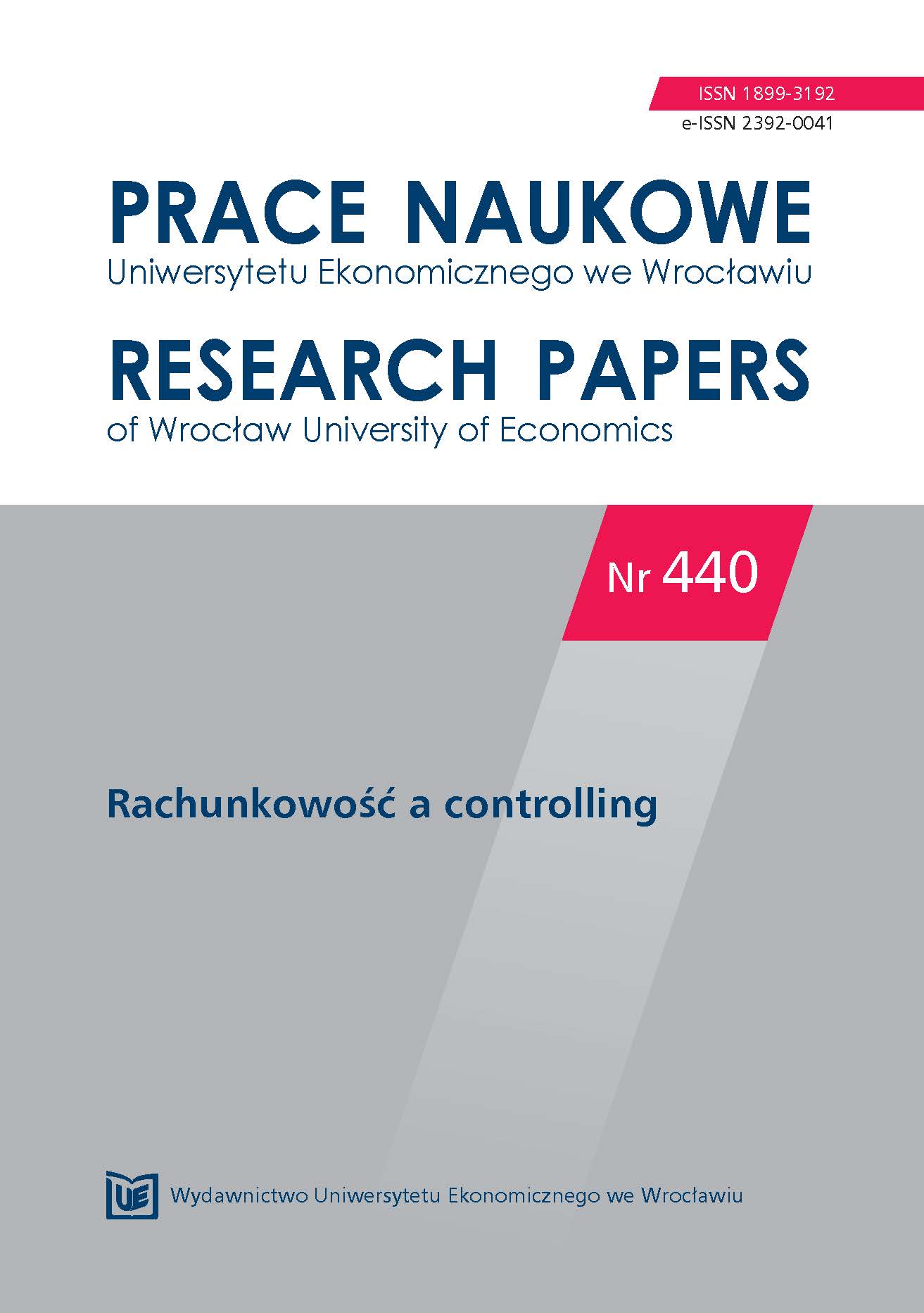Istotność pro- i retro- spektywnych celów współczesnej analizy finansowej w świetle wyników badań
Significance of the pro and retrospective objectives of the contemporary financial analysis in the light of research results
Author(s): Marlena Ciechan-Kujawa, Katarzyna GoldmannSubject(s): Economy
Published by: Wydawnictwo Uniwersytetu Ekonomicznego we Wrocławiu
Keywords: financial analysis; objectives of the financial analysis; management decisions; prospective analysis; retrospective analysis
Summary/Abstract: The aim of the article is to present the survey results relating to the objectives of modern financial analysis as well as analogies and differences in the assessment of their significance by companies and various groups of internal recipients. Studies have shown that there is a greater consensus about the perception of the importance of retrospective objectives than prospective ones. Interest in the use of financial analysis to make decisions about the future increases along with the size of the entity. Among the eight defined objectives of financial analysis, the traditional retrospective objective related to the presentation of financial position was indicated as the most important. Among the prospective objectives, the one rated highest was the role of financial analysis in identifying potential areas for the introduction of corrective and preventive actions with a view to improving the financial situation, and further, in order of importance, supporting management at the operational level. The biggest discrepancies within the group of respondents were found in the areas of the perception of the role of financial analysis in the assessment of going concern, which was indicated as important mainly by representatives of management boards.
Journal: Prace Naukowe Uniwersytetu Ekonomicznego we Wrocławiu
- Issue Year: 2016
- Issue No: 440
- Page Range: 128-138
- Page Count: 11
- Language: Polish

